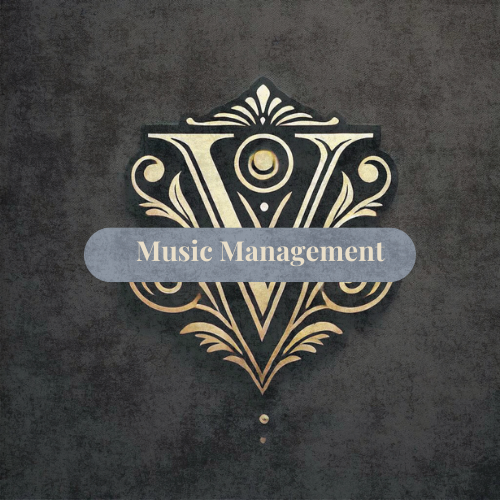In the fast-paced and ever-evolving music industry, having great music simply isn’t enough to stand out. As an independent artist, you need to think of yourself not only as a musician but also as a brand. Your brand is what connects you with your audience and defines your artistic identity. As a result, it sets you apart from the competition. Here’s how to get started on building a strong, recognizable brand that resonates with your listeners.

1. Define Your Artistic Identity
The first step in branding is understanding who you are as an artist. What do you stand for? What story are you telling through your music? First, think about your core message, your values, and the emotions you want to evoke. Therefore, a clear artistic identity guides everything you do. It shapes your music style, visual presentation, and how you communicate with fans.
Tip: Reflect on your influences and the unique aspects of your journey as an artist. For example, Billie Eilish has built her brand around her distinct sound and style, which includes a combination of haunting vocals and oversized, edgy clothing. Authenticity is key—fans connect with artists who are genuine and true to themselves. For more insight into building a personal brand, check out Forbes’ article on artist branding.
2. Develop a Visual Brand
Next, it’s time to bring it to life visually. For example, your visual brand includes your logo, album artwork, stage outfits, website design, and even the color palette you use on social media. These elements should work together. They should create a consistent and memorable image.
For example: Think of artists like The Weeknd, who uses a signature red and black color scheme across his album art, music videos, and tour visuals, creating a powerful, cohesive brand. Or consider how Halsey integrates her personal story into every visual element, from her album covers to her social media. Moreover, working with a graphic designer can be incredibly helpful in translating your musical identity into visuals that truly stand out. For inspiration, visit Design Shack.
3. Be Consistent on Social Media
Social media is a powerful tool for independent artists. It’s where you engage with fans. It’s where you promote your music and share your story. But consistency is crucial. Additionally, your posts should align with your brand’s tone and look. For instance, whether you’re sharing behind-the-scenes content, announcing a new release, or interacting with your audience, consistency is key.
Pro Tip: Create a content calendar to plan your posts in advance. This helps ensure you stay consistent and maintain a steady presence, even when you’re busy with other aspects of your music career. Take a page from artists like Lizzo, who engages her audience with humorous, body-positive content that stays true to her brand. For tips on planning a social media calendar, visit Hootsuite’s guide.

4. Tell Your Story
Storytelling is at the heart of every successful brand. After all, people want to know the person behind the music. For instance, what inspired your latest single? What challenges have you overcome? How did you fall in love with making music? Sharing personal stories makes fans feel more connected. It also adds depth to your brand.
Practical Idea: Use Instagram Stories or YouTube vlogs to share glimpses of your creative process or talk about the inspiration behind your songs. Look at how artists like Ed Sheeran openly share their struggles and triumphs, making fans feel more invested in their journey. The more fans know about you, the more invested they’ll become. Learn more about the power of storytelling in music from Groover´s blog post.
5. Engage Directly with Your Fans
As an independent artist, one of your biggest strengths is the ability to connect directly with your audience. For this reason, take advantage of that! Respond to comments, ask your followers questions, and make them feel like they’re part of your journey. To build a loyal fanbase, create a community. Make it a place where people feel heard and appreciated.
Engagement Strategy: Run a Q&A session on social media, or host a live stream where you perform and chat with fans. Taylor Swift, for example, has mastered the art of fan engagement by surprising her fans with personal interactions and exclusive content. Check out Buffer’s advice on engaging with your audience.
6. Stay True to Your Brand as You Grow
However, as your career evolves, your brand may need to adapt, but staying true to your core identity is essential. Your fans have come to love you for who you are, so any changes should feel natural and authentic. If you’re ever unsure about a new direction, think back to the foundation of your brand: your identity, values, and the story you want to share.
Final Thoughts
Building a strong brand as an independent artist isn’t something that happens overnight. It takes time, reflection, and a commitment to presenting yourself authentically. But when done right, your brand will become a powerful tool that amplifies your music, deepens your connection with fans, and opens new opportunities in your career.
Need help with branding or marketing your music? As a music manager, I specialize in helping independent artists define and grow their brand. Get in Touch to learn more about how we can work together to bring your vision to life.
